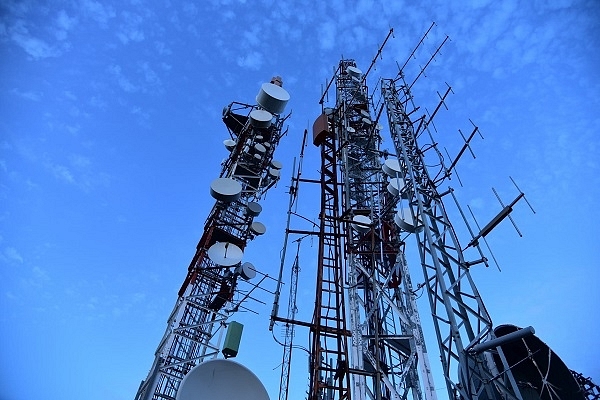Business
Two-Year Spectrum Fee Moratorium Is Just Band-Aid; Bigger Relief Needed To Revive Telecom
- The government’s moratorium is clearly not going to put the industry back on its feet.
- It is merely band-aid for the time being. It has to do more to make the industry profitable and vibrant once again.

Telecom towers. (Pexels/Pixabay)
The Union government’s decision to offer a two-year moratorium to telecom companies on spectrum fee payments is a good start, but does not go too far in rescuing the industry from disaster. The moratorium will improve cash flows in 2020-21 and 2021-22, but the entire amounts will then bunch up in the years after that, going all the way till each operator’s licence period ends.
The cash flow relief will mean a revenue loss of Rs 42,236 crore over these two years, with Vodafone Idea accounting for Rs 23,920 crore, Bharti Airtel Rs 11,746 crore and Reliance Jio Rs 6,670 crore, according to calculations by The Economic Times. Add the increase in tariffs that all major players are planning from December, and the industry should be back in the black in terms of operating profits from the next quarter.
The Supreme Court verdict in the adjusted gross revenues (AGR) case imposes a total burden of more than Rs 1.4 lakh crore on the industry, which means the bills remaining to be paid this year and the next two years will remain huge. A significant chunk of the amounts won’t be paid as some of the companies concerned (Aircel, Reliance Communications) are already in bankruptcy court, but the survivors will have to borrow and pay through their noses.
Communications Minister Ravi Shankar Prasad told Parliament yesterday (20 November) that there is no move to condone or reduce these payments.
One can understand the government’s reluctance to offer an immediate relief on this score, since it involves seeking the court’s nod. It may also be politically unwise, since it would immediately send the opposition into a frenzy, demanding more farm loan write-offs. The argument will be, if a few telecom companies can be given waivers of tens of thousands of crores, why not poor farmers?
The government will have to find a smart way to provide future relief and navigate the politics surrounding a telecom waiver of reduction in overdues. If this is not done, there is no guarantee that the three remaining private sector players will remain in the ring for long. One more exit cannot be ruled out even after the tariff hike and the two-year moratorium on spectrum payments.
As things stand, any payments made to government in lieu of the AGR overdues will push up the debts of telecom companies, since they hardly have the cash flows needed to pay such huge amounts. They will have to borrow to pay their dues, unless those amounts are amortised differently. Between Airtel and Vodafone, bank debts already add up to over Rs 2 lakh crore.
There are three possible ways out.
One is to freeze the dues at current levels, and ensure that they do not keep snowballing into bigger amounts due to accruing interest and penalties. The frozen amount can then be repaid over the term of the telecom licence tenure. The Supreme Court can be petitioned to accept this relief, though the government is well within its rights to make these waivers on its own.
Second, future licence and spectrum charges can be cut, so that even the annual payments of past dues do not bloat the outgoing significantly.
Third, spectrum should be freely tradeable, assignable, and sold to third parties, including banks, who should then be able to recover some of their dues from companies now in bankruptcy courts.
It is foolish for the Department of Telecom to claim that all spectrum issued to bankrupt companies must revert to it, when banks had lent money only on the basis of the spectrum available to those companies. What DoT can do is re-auction the same spectrum for the residual period of the licence and give the cash to the banks after taking a reasonable fee on these transfers. It need not be left to the banks to auction the spectrum.
The government’s moratorium is clearly not going to put the industry back on its feet. It is merely band-aid for the time being. It has to do more to make the industry profitable and vibrant once again.
Support Swarajya's 50 Ground Reports Project & Sponsor A Story
Every general election Swarajya does a 50 ground reports project.
Aimed only at serious readers and those who appreciate the nuances of political undercurrents, the project provides a sense of India's electoral landscape. As you know, these reports are produced after considerable investment of travel, time and effort on the ground.
This time too we've kicked off the project in style and have covered over 30 constituencies already. If you're someone who appreciates such work and have enjoyed our coverage please consider sponsoring a ground report for just Rs 2999 to Rs 19,999 - it goes a long way in helping us produce more quality reportage.
You can also back this project by becoming a subscriber for as little as Rs 999 - so do click on this links and choose a plan that suits you and back us.
Click below to contribute.
Latest